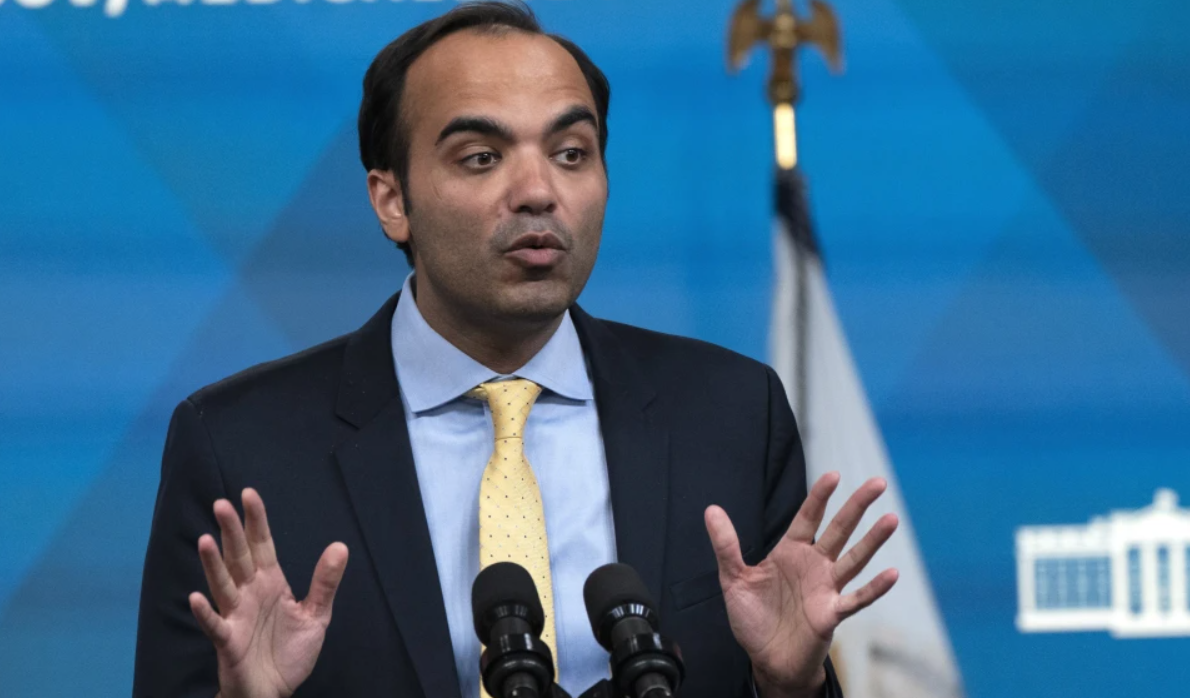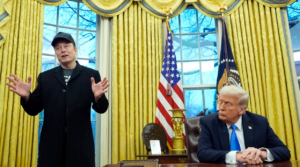President Donald Trump has dismissed Rohit Chopra, the director of the Consumer Financial Protection Bureau (CFPB), marking another removal of a Biden-era official. Chopra, who had been serving as a key regulator from the previous administration, was one of the last holdovers from the Democratic administration. During his time at the CFPB, Chopra implemented significant reforms, including removing medical debt from credit reports and limiting overdraft fees. These actions were designed to make the financial system fairer and more competitive for consumers, though many in the financial industry viewed them as excessive regulation.
In a post on social media following his departure, Chopra expressed his gratitude to those who shared their experiences and ideas with the CFPB. He thanked them for helping the agency hold powerful companies and their executives accountable for legal violations, improving the work done by the bureau.
During Donald Trump’s first term, the Republican president appointed Rohit Chopra, a Democrat, to the Federal Trade Commission (FTC).
In his letter, Rohit Chopra mentioned that the Consumer Financial Protection Bureau (CFPB) was prepared to collaborate with the Trump administration. He highlighted that the agency had developed rules aimed at preventing countries like Russia and China from using data brokers to spy on Americans. Additionally, the CFPB had introduced policies to protect individuals from losing access to banking services for exercising their constitutional rights, such as expressing political or religious opinions.
Chopra’s letter also referenced the CFPB’s review of Trump’s campaign proposal to limit credit card interest rates.
Chopra was informed of his dismissal via email, according to a source who was familiar with the situation but spoke anonymously because they were not authorized to share the details publicly.
Under the law, Rohit Chopra was appointed to a five-year term as director of the CFPB, which meant he could have stayed in the role. However, Chopra had publicly stated that he would step down if asked by the new president.
Chopra’s tenure highlighted the tensions between Trump’s promises to reduce regulations for businesses and his populist appeal to voters. After Trump took office, there was immediate pressure from financial sector critics for the president to remove Chopra. Following a report on January 22, which revealed that Chopra had remained in his position, critics argued that his continued presence would hinder Trump’s pro-business agenda.
Weston Loyd, press secretary for the Consumer Bankers Association, stated that Chopra’s remaining in the role made it more difficult for the administration to undo what he saw as the government-driven, price-setting policies Chopra had pushed under the previous administration. Richard Hunt, from the Electronic Payments Coalition, criticized Chopra’s time at the CFPB as marked by “witch-hunts” and the political misuse of the agency, claiming his policies restricted vulnerable consumers’ access to credit.
On the other hand, many liberal groups supported Chopra, emphasizing that his work had helped return billions of dollars to consumers.
Kitty Richards, a former Treasury Department official and senior adviser at the liberal think tank Groundwork Collaborative, praised Rohit Chopra as a “tireless watchdog” who worked to hold “predatory corporations accountable.” Richards criticized Trump, saying the president was more focused on benefiting his wealthy allies than enacting change for working people.
Chopra was also a close ally of Senator Elizabeth Warren, a vocal critic of Trump and a key supporter of the CFPB. Warren expressed in a statement that under Chopra’s leadership, the CFPB had successfully held “Wall Street accountable” for exploiting hardworking families and had worked to prevent the de-banking of Americans.
California Representative Maxine Waters, the top Democrat on the House Financial Services Committee, also weighed in, stating that Chopra’s removal marked the end of a period of strong consumer protections and signaled the beginning of efforts to dismantle the CFPB.
The Consumer Financial Protection Bureau (CFPB) was established after the 2008 financial crisis to oversee consumer financial products like mortgages and car loans. It has faced strong opposition from Republicans and their financial supporters for years.
Last year, the Supreme Court dismissed a challenge that could have weakened the bureau, ruling that its funding structure is constitutional. Unlike most federal agencies, the CFPB doesn’t rely on Congress’s annual budget process but is instead directly funded by the Federal Reserve.













